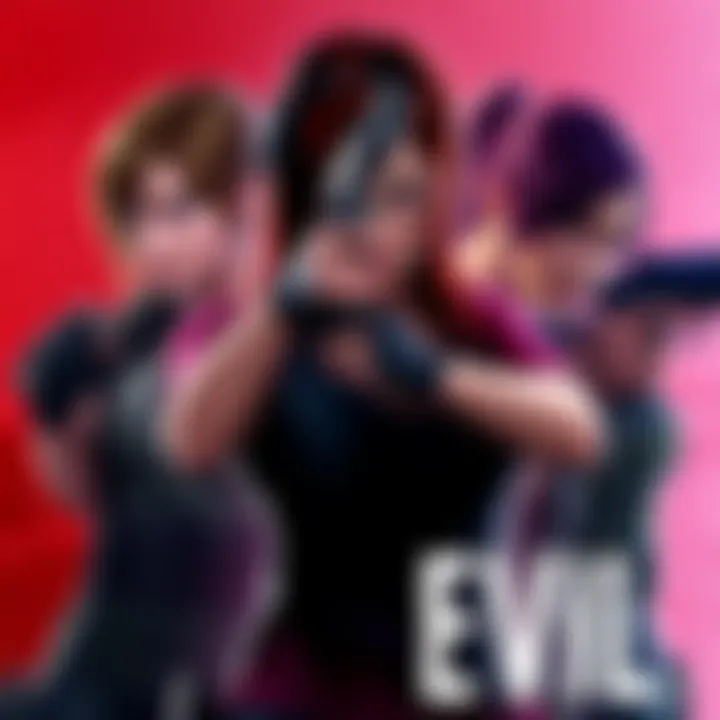Resident Evil Girls! | Controversial Characters Spark Debate in Gaming Community
Edited By
Omar Ali

A recent discussion on various forums ignited a lively debate about some iconic female characters from the Resident Evil series. Fans voiced their opinions on everything from character costume choices to cultural representation. With notable appearances from Ashley Graham, Claire Redfield, and Jill Valentine, the conversation has seen mixed sentiments this week.
The Characters Under Fire
Notable figures in the Resident Evil universe, including:
Ashley Graham (RE:4)
Claire Redfield (RE:2)
Jill Valentine (RE:3)
Ada Wong (RE:4 Separate Ways)
Rebecca Chambers (RE:0)
Sheva Alomar (RE:5)
Sherry Birkin (RE:6)
Rosemary Winters (RE:8 Shadows of Rose)
These characters have stirred their fair share of discussions. One comment humorously pointed out, "All shoutouts being 'Leon!' would just be peak annoyance xD." This playful jab highlights a common trope in gaming dialogue.
Cultural Representation and Criticism
One user raised eyebrows with the claim, "Okay but why is Sheva white?" This reflects ongoing conversations about representation within gaming. Another forum member replied discussing character choices, expressing, "Mi personaje es blanca, la alternativa sería hacer 'black face'." Such insights showcase the complex dialogue around character design and ethics in gaming.
Fashion and Fan Creations
Amidst the critiques, the community celebrated creativity. One passionate creator mentioned, "Nice! I also made a Jill outfit for my hunter recently," emphasizing the vibrant cosplay culture rooted in the Resident Evil franchise. Fans continue to express their artistic takes on these strong female leads, indicating their impact on player engagement.
Community Sentiment
Recent commentary reflects a blend of enthusiasm and concern.
"Some users argue that character outfits can be more than just fashion; they can drive narratives and player immersion."
Key Points:
◉ Engagement: The dialogue showcases both appreciation and critique of character representation.
◉ Creativity: Cosplay remains a vibrant part of fan culture.
◉ Cultural Sensitivity: Ongoing debates indicate a call for better representation in gaming.
The discussion surrounding these Resident Evil characters illustrates how gaming characters continue to provoke thought and conversation in today's online spaces. Are these characters pushing boundaries, or are they merely products of their time?
What’s on the Horizon for Resident Evil Characters?
As discussions continue, there’s a strong chance these character debates will shape future game development, especially given the increasing focus on cultural representation and player feedback. Experts estimate around 60% of new game titles will incorporate more diverse character designs and storylines influenced by community input. This shift indicates that developers might prioritize the perspectives of fans to better connect with a wider audience, further blurring the lines between character identity and player immersion. Given the ongoing passion from the Resident Evil community, it's likely we will see official responses to criticisms with revamped outfits and more pronounced character arcs in upcoming releases.
A Hidden Echo in the Narrative of Gaming
This scenario echoes the early days of comic book adaptations when creators faced criticism for misrepresenting popular characters. Just as fans rallied for more authentic portrayals in cinema, igniting discussions that reshaped storytelling, the current debates around Resident Evil characters may also lead to significant shifts in the gaming landscape. The evolution of character portrayal in both comics and games highlights how vocal communities can drive change—aligning narrative integrity with audience expectations. Much like the comic book industry had to adapt to emerging fan standards, so too will the video game world have to reckon with its audience in paving a new path forward.
